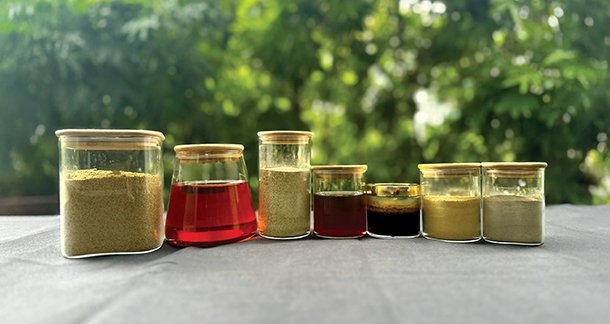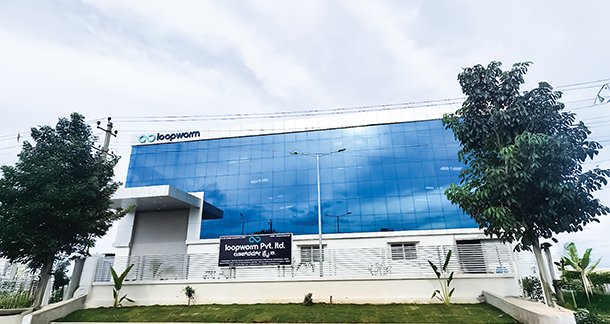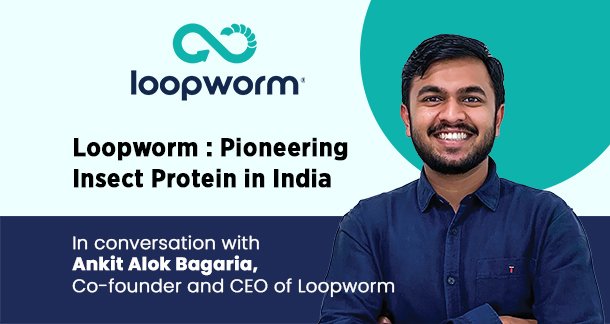In conversation with Ankit Alok Bagaria, Co-founder and CEO of Loopworm, a Bangalore based Startup involved in insect-based protein and fat products. He shares his insights into the company’s evolution, their recent milestone, scope of insect proteins, and more.
Question- Can you briefly describe the scope of Loopworm’s work? What was 2024 like for you and what are your plans for 2025?
Loopworm is an insect bio-sciences and biomanufacturing company. We process cultivated insects into value-added products, which are often sustainable in nature as insects by themselves are sustainable. We then supply these products B2B to different industries with the aim of solving their problems.
We started our factory in March last year, which was a breakthrough. It came in with a lot of efforts and pain to navigate all the regulatory barriers. First, we got the factory up and running and then optimized it further.
This was the first good thing which happened in 2024. The second is that we secured multiple certifications to certify our product quality namely ISO22000, GMP+ and HACCP. We have opened doors, not just in India but outside India as well with EU Traces and USFDA Certifications. We have been currently supplying our products to aquaculture feed and pet food manufacturing industries. We have been doing this for 6-7 months now. However, the pet industry is still nascent for us with smaller volume sales but now we have got a breakthrough with one of our orders going in for pet nutrition to Europe.
Looking ahead, we want to scale up further. We want to grow our team. There are several different products for the pet health and nutrition market that we are working on. So, we are raising capital for it.

Question– Can you tell us about the EU traceability, what it means to your company, and how does it open doors for you in terms of selling in Europe?
The insect-derived products industry, particularly in the pet food domain, is still nascent, both in India and globally. The industry’s growth began roughly a decade ago, with European players raising capital around 2013–2014, sparking discussions and development. However, it remains a long journey ahead, as more data points and efficacy studies are only now emerging, providing more information into this evolving sector.
In India, awareness of insect-based proteins and fats as sustainable and bio-functional ingredients started gaining traction only 3–4 years ago. Today, the industry acknowledges their potential, though the concept is still relatively nascent.
Traceability plays a critical role, especially for facilities like ours, which are certified to supply European-grade products. Approval to ship to Europe is rigorous, requiring compliance with EU regulations, which many non-EU European countries also follow. This certification acts as a testament to adherence to EU standards, demonstrating that products meet stringent quality requirements.
In a developing country like India, where quality is sometimes questioned by developed nations, such certifications affirm that Indian manufacturers are indeed on par with global standards.
Question– How have smaller pet food manufacturers in India responded to the idea of using insect-based protein compared to traditional chicken and fish? Are they open to exploring this alternative?
The pet food industry in India is still in its early stages. Data shows that 85% of pet parents feed homemade food, while only 15% purchase pet food, treats, or supplements. Of this, the market is dominated by imported products, leaving a smaller share for domestic producers.
Smaller players, like us, are collaborating with similar upcoming businesses to take calculated risks and grow together. While the focus remains on dogs and cats due to sheer market size, niche segments like ornamental fish, reptiles, small mammals, and birds are gaining traction. Globally, insect-based products are gaining acceptance for these segments, as they align naturally with their diets.

Question- When it comes to the pet food manufacturing, how does the price point play out between chicken, fish and the insect based protein?
I think it is at par. I cannot comment on behalf of the entire industry because everybody has their own business development strategy but for us, it is at par with the other conventional ingredients that are being used.
I think it is at par in terms of quality as well or even better in certain angles like, in terms of quality, because the amount of protein, the availability of antimicrobial peptides, which is naturally there in insects, boosts the immunity of the animal consuming it. At the same time, it has certain novel biomolecules, which it accumulates from the food that it eats. So, it brings in its own set of benefits if included in a pet’s diet.
Question- Are you open to discussions with any third party manufacturers?
Not in India as of now but outside India, we are engaging with OEMs, particularly in Southeast Asia, where insect-derived products have higher acceptance due to their established use as human food in certain cultures. In countries like Thailand, these OEMs produce for the global market. This acceptance is evident at pet food and animal feed events, where attendees occasionally sample our protein powder, intrigued by its taste and aroma, despite it not being certified as human-grade.
Question- What is the role of the Indian government and its policies in supporting the development of the alternative protein industry, especially for insect-based proteins, both domestically and abroad?
The Indian government is gradually supporting the alternative protein industry through initiatives like the new Bio-E3 policy, which includes a dedicated section on smart proteins. Although the concept of “smart proteins” is still somewhat ambiguous, the focus on proteins in general is a welcome step toward strengthening food systems for humans and pets alike.
Additionally, there are government schemes that promote protein research, life sciences, agriculture, smart food, and the circular economy. Insects, being part of the larger themes of sustainability and the circular economy, are gaining recognition as a viable alternative protein source. While these initiatives are still in their nascent stages, their inclusion in policies is a positive sign.
Platforms like this discussion are vital for raising awareness, addressing questions, and driving broader acceptance of such innovative solutions within the industry.

